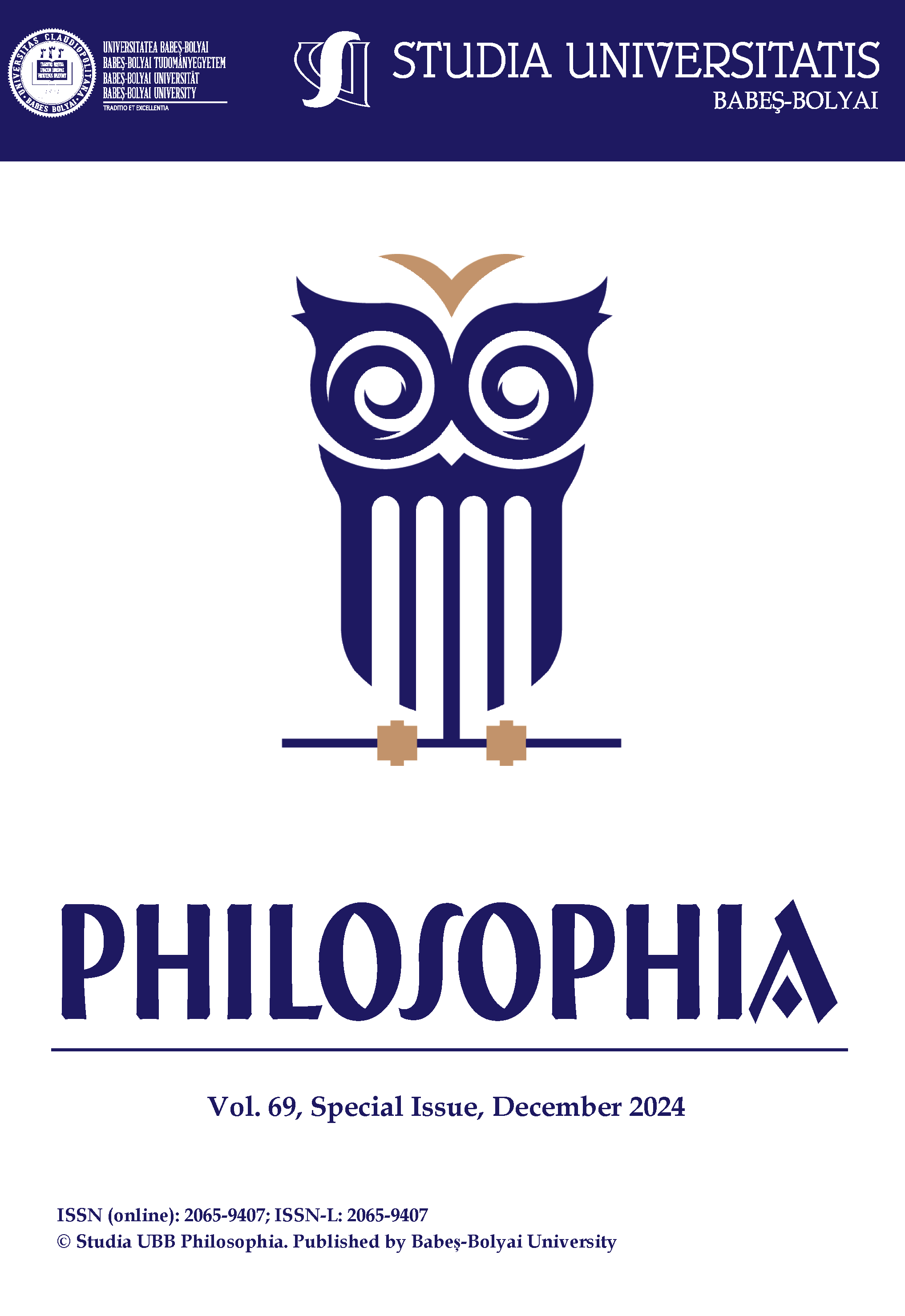The bad peace and the good war. Rhetoric of duplicity in Augustine, from “De Civitate Dei” to "Epistola 185"
DOI:
https://doi.org/10.24193/subbphil.2024.sp.iss.04Keywords:
peace and war, Catholic Church, Plato, Plotinus, AugustineAbstract
The present paper is rooted in an older concern, regarding Augustine’s contradictions[1]. In the history of ideas there is a common place that authors contradict themselves and that their ideas migrate from one pole to another. This paper aims to present the case study regarding Augustine’s contradictions. I propose to focus on an issue that interfered later with the Church’s politics, namely the subject of peace and war, as we find them in De Civitate Dei and Epistola 185. Even though the issue of peace and war appears in several of his writings, those mentioned before seem more relevant for the topic, as they were also approached previously by other authors. I equally propose to highlight that Augustine echoes some ideas on war that can be read under Plato’s pen, although he was more of a Plotinus’s follower. But, as a personal touch, I would try to incorporate it within the entire dual thought of Augustine, that was echoed in the following centuries in the thought of the scholastics and the policy of The Catholic Church.
[1] I’m aiming to speak about the ideological contradictions in the present article (the good peace/the bad peace, the good war/the bad war, connected to the good love/the bad love etc)
References
1. Arendt, Hanna, Love and Saint Augustine, Edited by Joanna Vecchiarelli Scott and Judith Chelius Stark, The University of Chicago Press, Chicago – London, 1996.
2. Arendt, Hannah, Iubirea la Sfântul Augustin, Humanitas, București, 2022.
3. Aristotle, Politics, translated by Benjamin Jowett, Oxford, Clarendon Press, 1908.
4. Augustinus, De Civitate Dei contra paganos, Ed. Jacques Paul Migne, Patrologia Cursus Completus. Series Latina, vol 41.
5. Augustine, Letter 185, Translated by J.R. King from Nicene and Post-Nicene Fathers, First Series, Vol. 1, Edited by Philip Schaff (Buffalo, NY: Christian Literature Publishing Co., 1887). Revised and edited for New Advent by Kevin Knight: <http://www.newadvent.org/fathers/1102185.htm>
6. Brown, Peter, Augustine of Hippo, University of California Press, Berkley and Los Angeles, 1967, 2000.
7. Carroll, James, Constantine’s Sword. The Church and the Jews, A Marriner Book, Houghton Mifflin Company, Boston, New York, 2002.
8. Fericitul Augustin, Scrieri alese. Partea întâia. Confessiones – Mărturisiri, Editura Institutului Biblic și de Misiune al Bisericii Ortodoxe Române, București, 1985.
9. Filoramo, Giovanni, Crucea și puterea. Creștinii, de la martiri la persecutori, Humanitas, București, 2022.
10. Fredriksen, Paula, Augustine and the Jews. A Christian Defense of Jews and Judaism, Yale University Press, New Haven and London, 2010
11. Gonnet, Dominique, « Théorie et pratique de la paix selon Augustin dans l`Epistola 185 et De Civitate Dei, XIX,17 » dans Regards sur le monde antique, Hommage à Guy Sabbah, dirigée par Madeleine Piot, Presses Universitaires de Lyon, 2002, p 115-129
12. Jaspers, Karl, The Great Philosophers, Plato and Augustine, edited by Hannah Arendt, translated by Ralph Manheim, A Harvest Book, Harcourt, Brace & World, Inc., New York, 1962.
13. Marés, Catherine, Augustin d’Hippone et de Carthage, un palimpseste de cultures in Mémoires de l’Académie de Nîmes, Xe série, tome XCV, Année 2023, Académie de Nîmes, 2023, p.201-219 (Séance du 4 novembre 2022).
14. Poliakov, Leon, Istoria antisemitismului, vol 2, Editura Hasefer, București, 1999
15. Plato, Laws, Loeb Classical Library, Cambridge, Massachusetts, Harvard University Press, Londo, William Heinemann LTD, 1984.
16. Raețchi, Ovidiu, Istoria Holocaustului. Desființarea omului: de la ascensiunea lui Hitler până la execuția lui Eichmann, Litera, București, 2022.
17. Saint Augustine, The City of God. Concerning the City of God against the Pagans, Penguin Books, 2003.
18. Shaw, Brent, Sacred Violence. African Christians and Sectarian Hatred in the Age of Augustine, Cambridge University Press, 2011.
Downloads
Published
How to Cite
Issue
Section
License
Copyright (c) 2024 Studia Universitatis Babeș-Bolyai Philosophia

This work is licensed under a Creative Commons Attribution-NonCommercial-NoDerivatives 4.0 International License.



